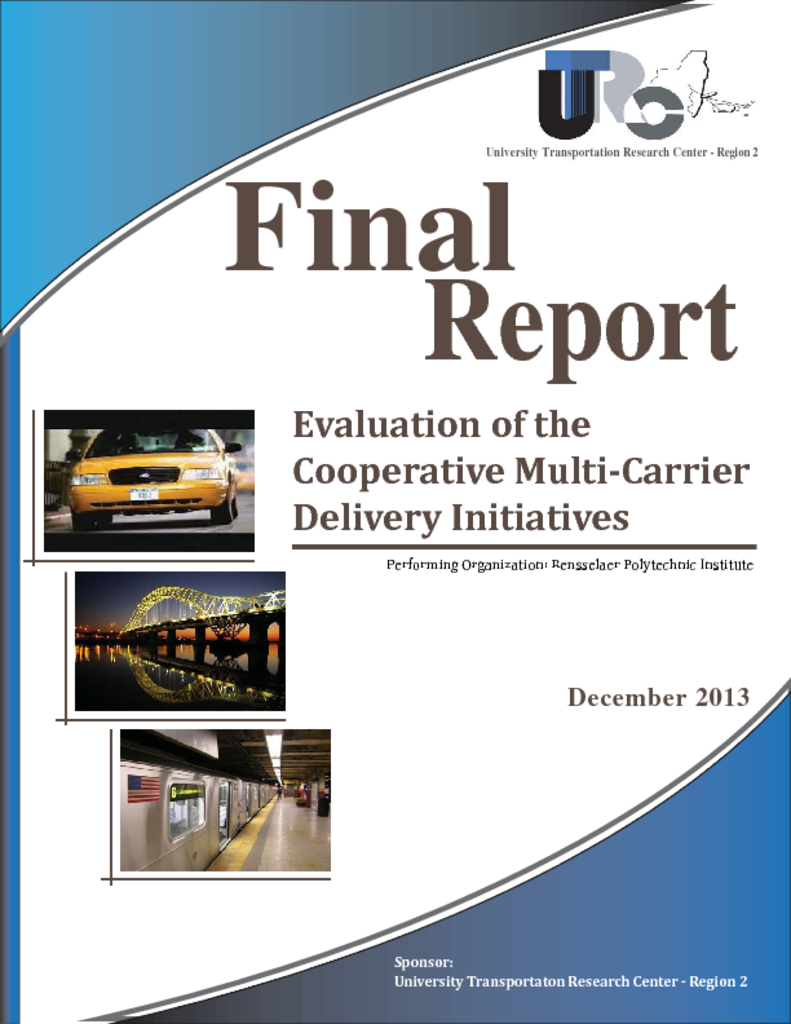In the last several years there has been a surge of interest in fostering more sustainable logistical operations in urban areas. Under the umbrella of the generic term City Logistics, these initiatives try to take advantage of the coordinating power of a municipal government to convince urban delivery companies to participate in collaborative schemes that by reducing truck trips, increasing the utilization of trucks, or both, may reduce the negative externalities associated with urban truck traffic. While most research on this topic focuses on freight models (Holguin-Veras, et al, 2001), freight transport networks (Yamada, et al, 2010) and urban freight project evaluation (Thompson and Hassall, 2005), not much research has been conducted to understand the behaviors of urban carriers and freight receivers in response to the cooperative multicarrier delivery initiatives and assess its impacts on a disaggregate level. Some researchers had studied the behavioral modeling between freight agents (Thompson and Hassall, 2005). It is important to investigate the interactions between freight agent and how those relations impact decision making and policy implementation. To investigate a cooperative multicarrier delivery initiative and assess its impacts on a disaggregate level, this report is divided into two parts. The first part studies freight delivery patterns in New York City and related influential factors. Results would serve the feasibility study of implementing FCC in New York City. The second part focuses on studying the decision-making process for developing urban freight consolidation centers (FCC) using experimental economics approach. Players acting as different stakeholders are given cash bonus to mimic the decision making process.


